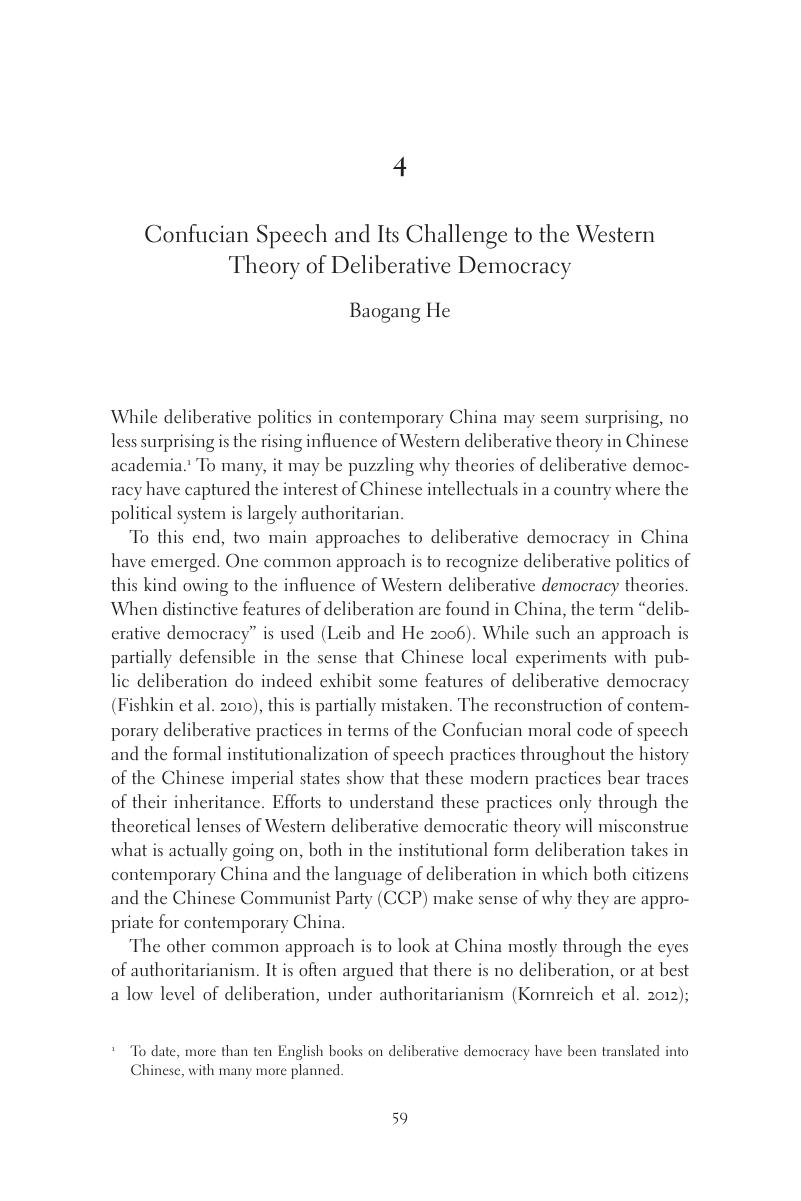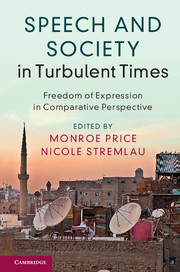Book contents
- Speech and Society in Turbulent Times
- Speech and Society in Turbulent Times
- Copyright page
- Contents
- Contributors
- Foreword
- 1 Introduction: Speech and Society in Comparative Perspective
- Part I Revisiting International Norms
- Part II Dewesternizing Tendencies
- 4 Confucian Speech and Its Challenge to the Western Theory of Deliberative Democracy
- 5 From Gandhi to Modi: Institutions and Technologies of Speech and Symbolism in India
- 6 The Making of a Media System in Uganda: A New Vision and a Revolutionary Origin
- 7 Neoliberal “Good Governance” in Lieu of Rights: Lee Kuan Yew’s Singapore Experiment
- 8 Atatürk and Contemporary Speech Lessons from the Late Ottoman and Early Republican Era
- 9 Jewish Law and Ethics in the Digital Era
- Part III The West as Progenitor and Modifier of Concepts of Free Expression
- Part IV Technologies and Ideologies in Turbulent Times
- Part V Conclusion
- Index
- References
4 - Confucian Speech and Its Challenge to the Western Theory of Deliberative Democracy
from Part II - Dewesternizing Tendencies
Published online by Cambridge University Press: 17 November 2017
- Speech and Society in Turbulent Times
- Speech and Society in Turbulent Times
- Copyright page
- Contents
- Contributors
- Foreword
- 1 Introduction: Speech and Society in Comparative Perspective
- Part I Revisiting International Norms
- Part II Dewesternizing Tendencies
- 4 Confucian Speech and Its Challenge to the Western Theory of Deliberative Democracy
- 5 From Gandhi to Modi: Institutions and Technologies of Speech and Symbolism in India
- 6 The Making of a Media System in Uganda: A New Vision and a Revolutionary Origin
- 7 Neoliberal “Good Governance” in Lieu of Rights: Lee Kuan Yew’s Singapore Experiment
- 8 Atatürk and Contemporary Speech Lessons from the Late Ottoman and Early Republican Era
- 9 Jewish Law and Ethics in the Digital Era
- Part III The West as Progenitor and Modifier of Concepts of Free Expression
- Part IV Technologies and Ideologies in Turbulent Times
- Part V Conclusion
- Index
- References
Summary

- Type
- Chapter
- Information
- Speech and Society in Turbulent TimesFreedom of Expression in Comparative Perspective, pp. 59 - 78Publisher: Cambridge University PressPrint publication year: 2017
References
- 2
- Cited by

